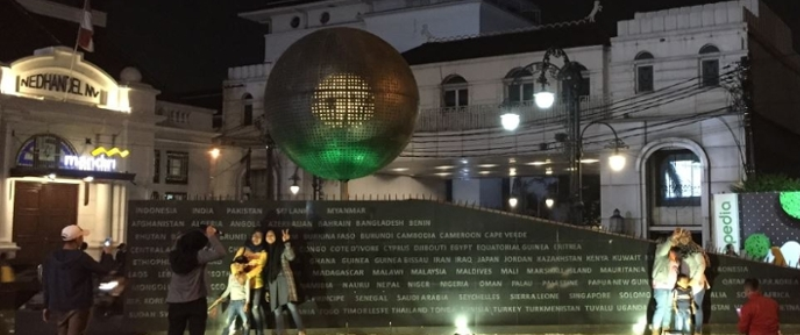
28 Jan Marieke Bloembergen appointed Professor of Archival and Postcolonial Studies
Marieke Bloembergen is appointed Professor of Archival and Postcolonial Studies at Leiden University, at the Colonial and Global History department of the Institute for History, from November 2018 onwards. In that role, Bloembergen will also continue her work, developing new research, as a senior researcher at KITLV.
Marieke Bloembergen is a cultural historian whose research focuses on colonial and post-colonial Indonesia (and the Netherlands), as situated in a widening, inter-Asian and global context. Educated in an interdisciplinary environment, in the midst of historians and social scientists, she allows her research to be guided by the view that culture – including knowledge production – is always also political. She has written a dissertation on Dutch colonial participation in world exhibitions (1880-1931), as well as a monograph on the social history of policing and violence in the Netherlands Indies. In 2019, a monograph (written with Martijn Eickhoff (NIOD)) will be published by Cambridge University Press on the mobility and practices of heritage formation in colonial and post-colonial Indonesia. Her current research interest focuses on the political dynamics and legacies of knowledge production, forms and mobility of knowledge, religion and heritage practices in colonial and post-colonial Indonesia, also viewed within inter-Asian and transnational contexts. Within this wider framework she is also preparing research on Indonesia-based policing biographies and police knowledge across decolonization.
Methods and archives for inclusive history – places, alternative archives, material culture
Next to her ongoing research at KITLV, in her new professorship Bloembergen will also teach and supervise MA students and PhD students at Leiden University’s Institute for History. For that, she will profit from her research experience build up at KITLV, and from the great collaboration all along with colleagues and students in the Netherlands, Indonesia and elsewhere. With her new students she will continue to seek – both inside and outside traditional archives – to explore the political dimension of (historical) knowledge production and our own role in this, and to discover ways to make local, Indonesian and transnational perspectives visible in the experience, narratives, and formation of history, outside of the national and state-bound frameworks of colonial historiography. To achieve this, she not only uses textual sources but also material and spatial culture, places, events and practices of knowledge and heritage formation in Indonesia, as vantage points and method to explore multiple perspectives and exchanges. ‘I look forward to teaching and supervising students and PhD students who want to search with me for research methods, sources and approaches that can lead to an inclusive form of history. I also hope to investigate with them how, why, and in what forms cultural decolonisation has had an influence on contemporary academic and heritage practices’, Bloembergen states.
Indonesia and Greater India, scholars and hippies
At the moment, Bloembergen is working on a monograph on the makings of the unified idea of Asia as ‘Greater India’, and the significance this idea has garnered for the imagining of Indonesia. Present-day South and Southeast Asia, including Islamic Indonesia, is represented around the world – in museums, science and popular culture – as a single civilization with Hindu-Buddhist and spiritual characteristics, originating in India. Bloembergen examines the role of scholarly and spiritual knowledge networks at local, inter-Asian, and global levels,, and examines how, why, and with what consequences knowledge exchange between pilgrims, scholars and hippies has contributed to this distorted view of Greater India. In doing so, she aims to make visible the links between scholarly and spiritual knowledge, which are usually considered strictly separate; for the 1880-1990 period, from the establishment of the theosophical society up to and including the legacy of the hippie trail.




No Comments